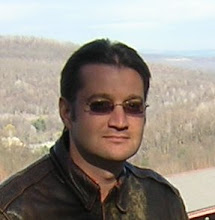In his column last week, the Gazette’s Blair Lee begins by saying, “...Last week’s revelations of Maryland State Police surveillance and infiltration of peace groups and anti-death penalty organizations should alarm every Marylander. A basic American freedom is our right to assemble and protest without becoming targets of police investigation — no ifs, ands or buts. End of discussion.” Fair enough. But he pivots rapidly to the real villain of Spygate – Martin O’Malley. That’s right, according to Lee, the current Governor is the bad guy because he is telling “the big lie” – namely, that Spygate occurred during the Ehrlich administration. I hope Mr. Lee will write a future column elaborating on how a chronological fact can be considered a “big lie.” (Mr. Lee is up a second time commenting on this blog, claiming, “Ehrlich’s position on Spygate differs little from the O’Malley administration’s.” I beg to differ.)
On Red Maryland, Mark Newgent justifies the spying because the anti-death penalty protestors may have included members of the American Friends Service Committee, a left-wing Quaker-affiliated group. Yes, whenever pacifist Quakers get together with people who think the death penalty and the Iraq War are wrong, there is bound to be violence. And in the middle of the scandal, Red Maryland blogger Last Reporter showcased the “Bring Back Ehrlich” bumper sticker below and promoted it again while cheering on Governor Ehrlich’s self-exonerating radio interview last weekend. Mysteriously, conservative blogger Brian Griffiths has not posted on the issue.

The response from the left has been more complicated. While conservatives have unquestioningly backed a former Republican Governor, liberals have stood up to the Democratic incumbent even though the spying did not happen on his watch. For example, while I have gone after Governor Ehrlich, I have also said about then-Mayor O’Malley, “If the city police used information passed on by the state police to launch their own investigation, then former Mayor O’Malley bears as much responsibility for them as former Governor Ehrlich has for the state police.” Paul Gordon has said that the current Governor “fails civics 101” for not supporting any legislation to prevent another Spygate. Eric Luedtke disagreed with the Governor’s position against legislation, saying “This situation has proven that the current system is vulnerable to abuse. It isn't enough to say sorry, blame it on the last guy, and promise it will never happen again. There needs to be a law, period.” ACLU lawyer David Rocah has also stated a preference for legislation over reliance on promises from the current Governor to prevent future spying.
Spygate is not merely a concern of liberals. In fact, at least three important principles of conservatism have been broken during the scandal:
1. Personal responsibility
Governor Ehrlich has spread the blame to former Attorney General Joe Curran and even former Baltimore Mayor O’Malley for Spygate. He could have said, “Even though I did not know about the investigation, I accept responsibility for all acts committed under my administration and I am as eager to get to the bottom of it as anyone else.” But so far he has not.
2. Government accountability
Governor Ehrlich has also said that the Governor should not monitor the state police and neither should the legislature. This would create an unaccountable state police force – something that would have repulsed our founding fathers.
3. Individual freedom from government control
When asked repeatedly by conservative WBAL talk show host Bruce Elliott whether there was anything wrong with the spying, Governor Ehrlich ducked the issue. Most real conservatives presume that individual freedoms should trump government power except in the most dire of circumstances. Non-violent protestors do not qualify.
So why are these conservatives refusing to stand up for conservative principles? The obvious reason is to protect Governor Ehrlich, whom some on Red Maryland are encouraging to run again. With Governor O’Malley’s poll numbers in the 30s, the economy in difficulty and the General Assembly’s billion-dollar tax hikes now taking effect, Governor Ehrlich is an attractive candidate for the right. Now it appears that he is more attractive than the very principles of conservatism itself.
Red Maryland blogger Brian Griffiths recently said, “...The problem with Republican politics in the 21st century is not the ideology of conservatism, but leadership that itself is not conservative. Once we figure out how to fix that, Republicans will reassume the mantle of ascendancy that we lost when Congressional leadership went native a few years back.” Whether you agree with Griffiths or not, he has a point: politics without principles is an empty pursuit of raw power for its own sake. Conservatives who blindly follow Governor Ehrlich will lose what they believe in.
So what should genuine conservatives do? Perhaps they should start paying their dues to the one organization that stands up for their constitutional rights – the ACLU!















